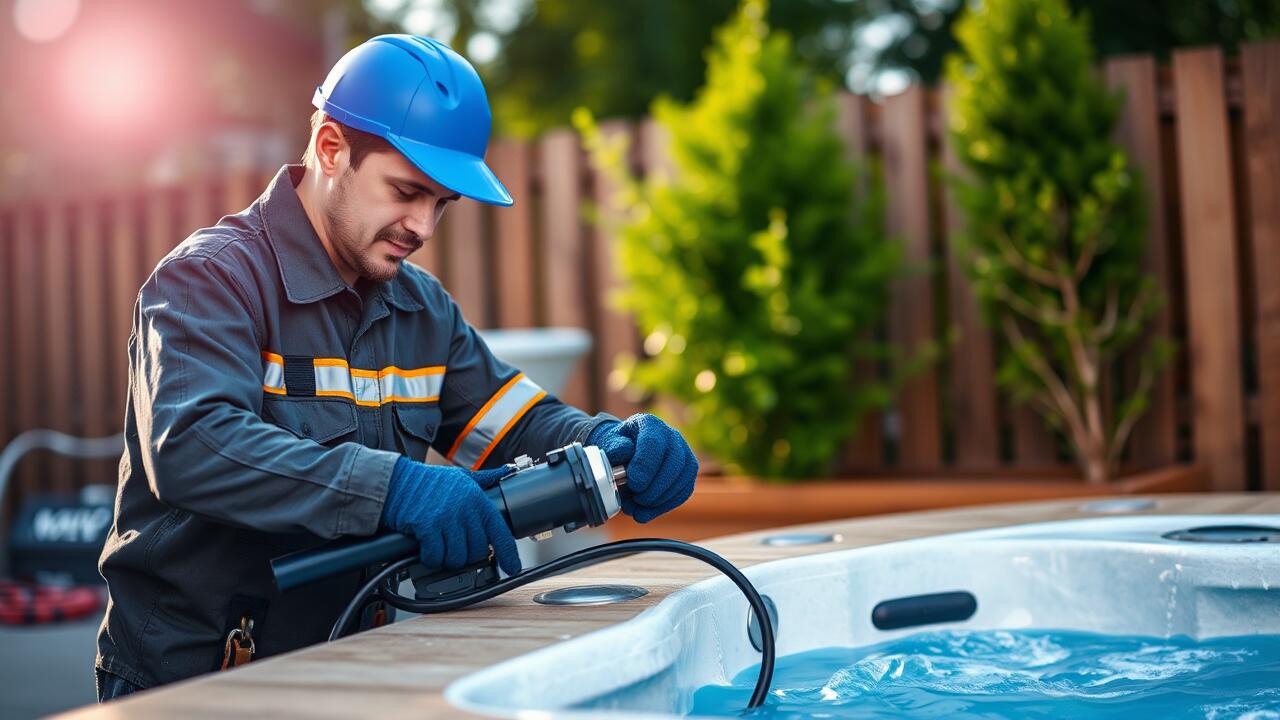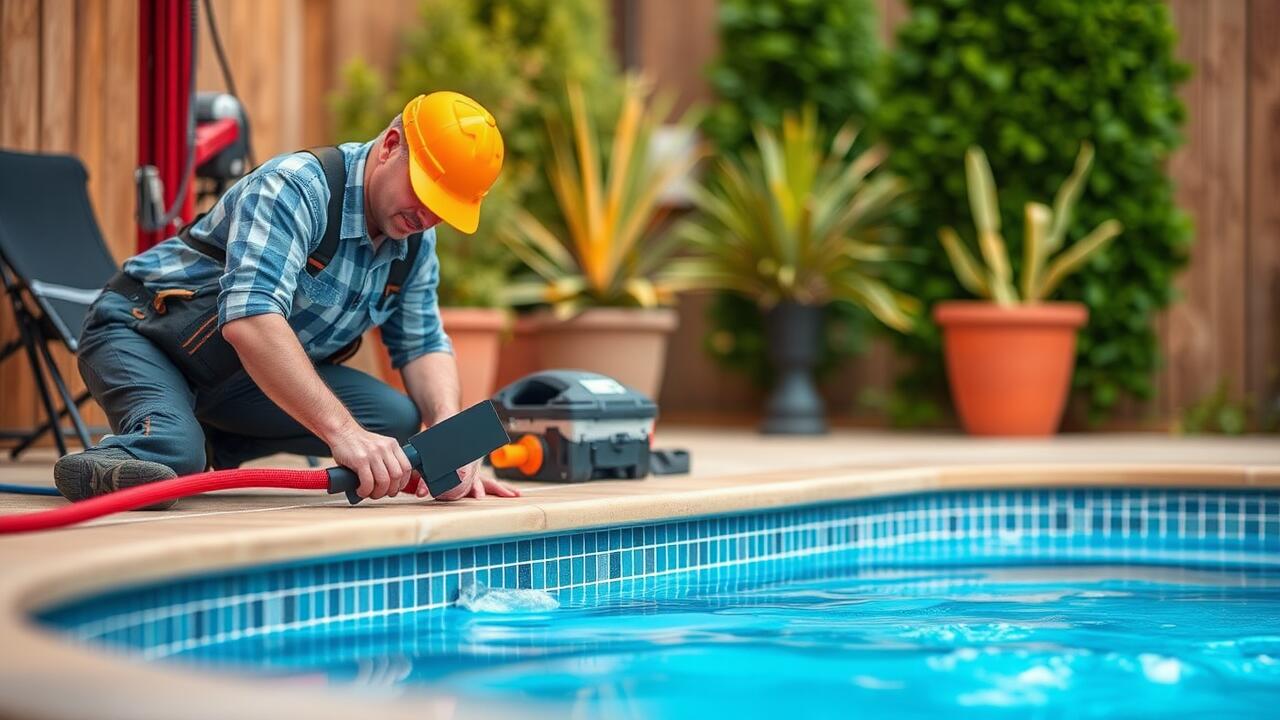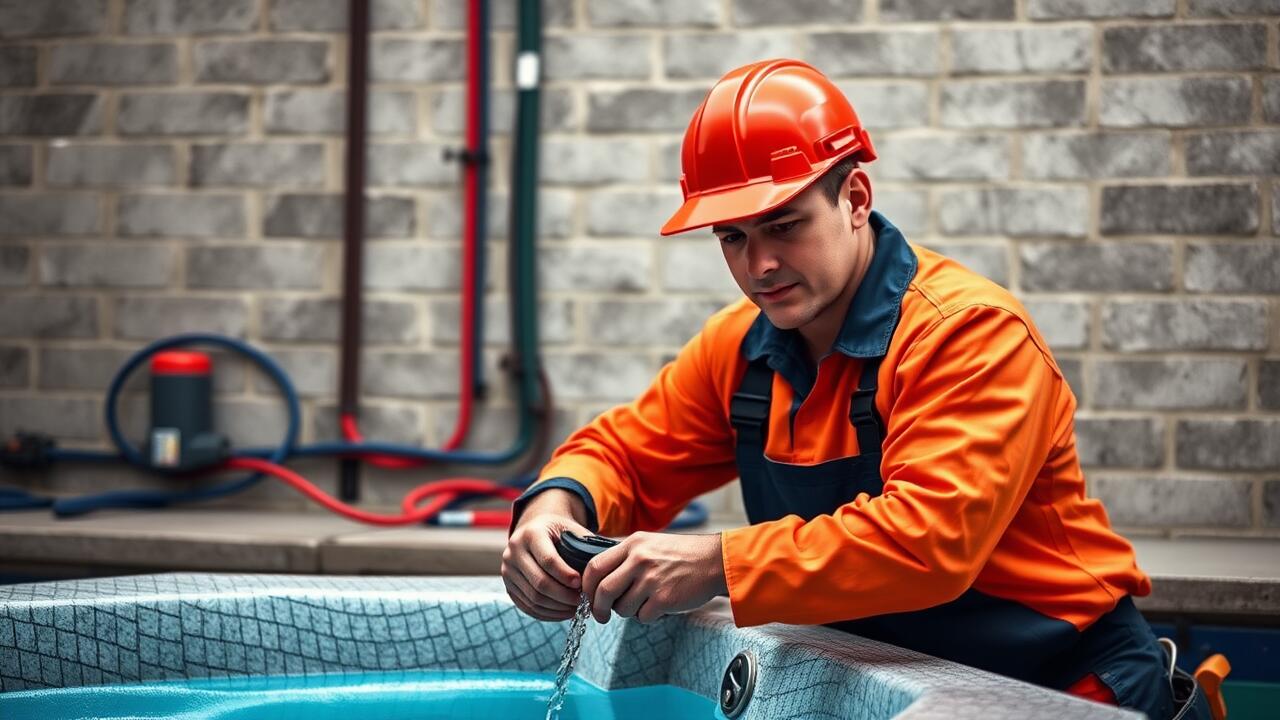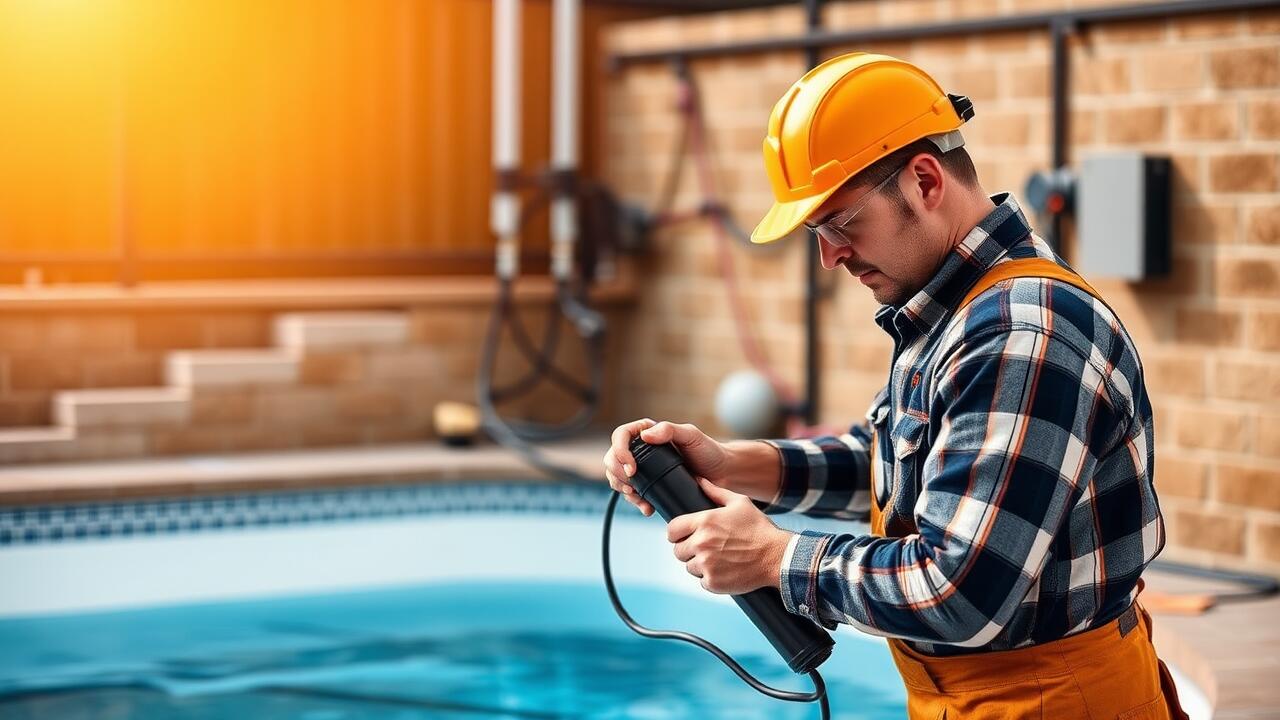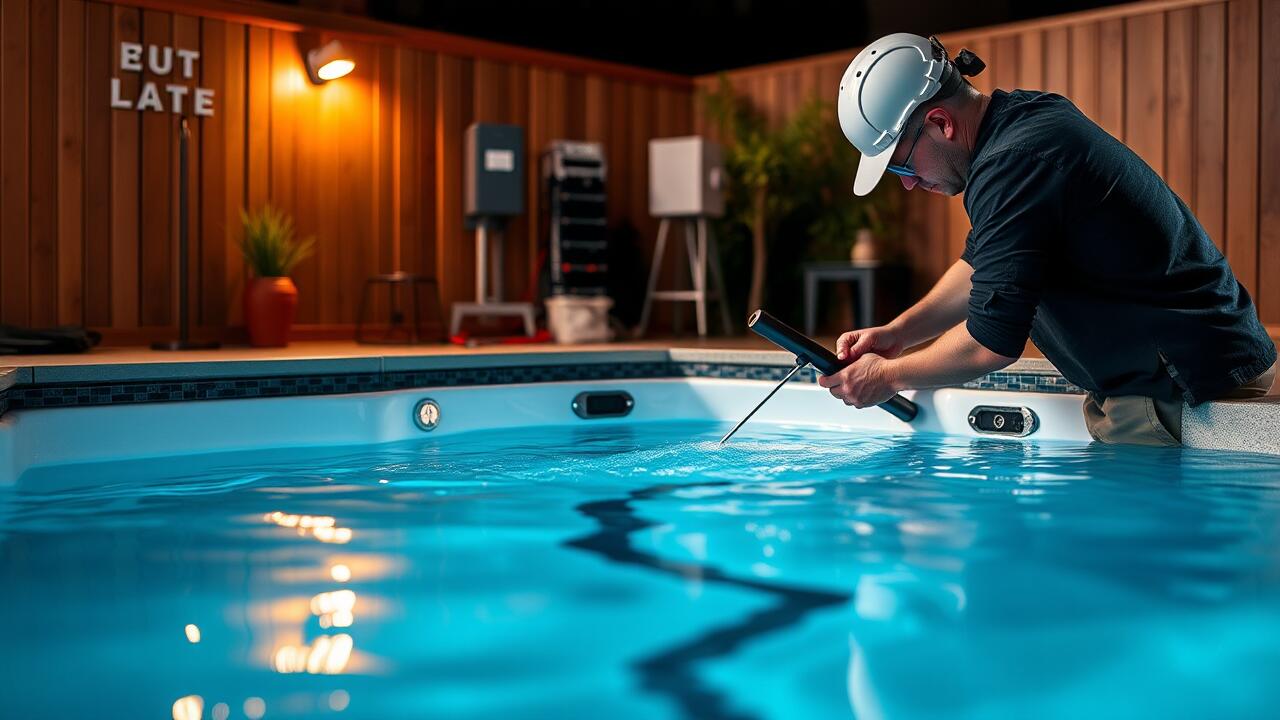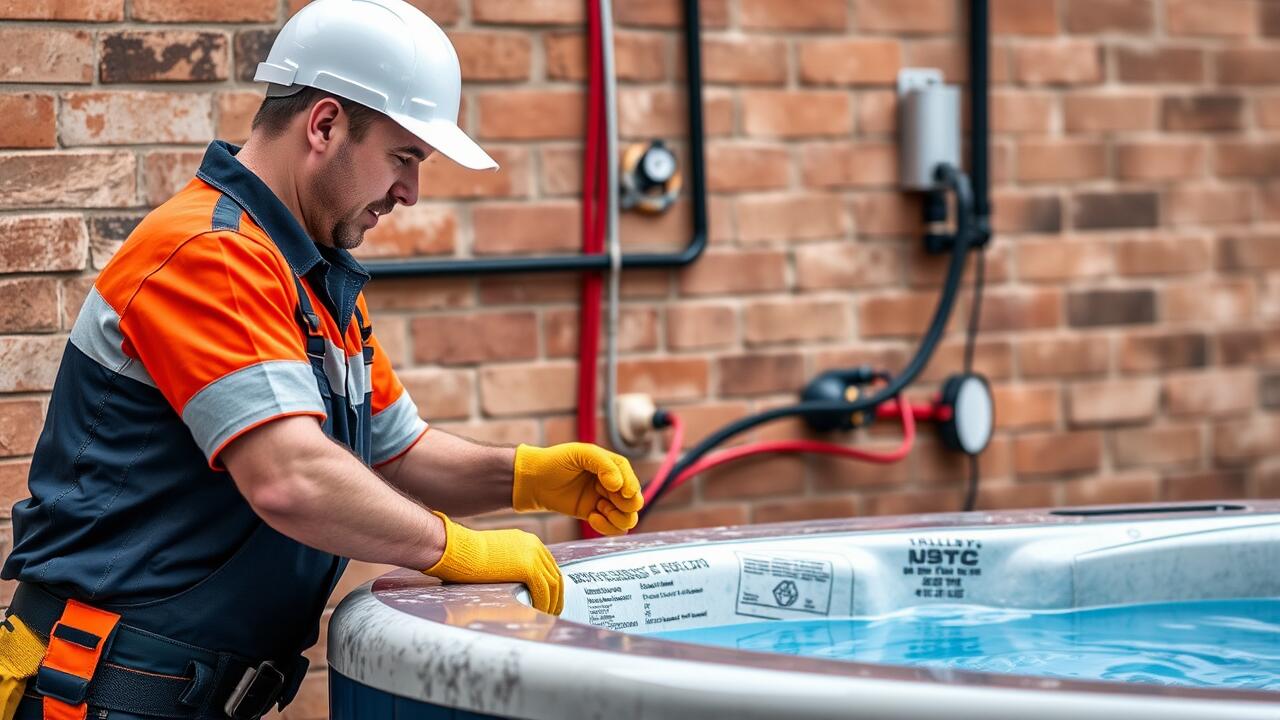
Grounding Hot Tubs
Grounding hot tubs involves establishing a safe electrical connection to the earth, which protects users from electric shock in case of a fault. Proper grounding is essential for any hot tub installation. It creates a designated path for electrical currents to follow, redirecting them harmlessly into the ground rather than through individuals who might come into contact with faulty equipment. Ensuring compliance with local electrical codes is vital.
When considering installation procedures, calling in professionals can mitigate risks. They will understand the specific requirements for grounded circuits and determine the appropriate materials. Awareness of regulations can help prevent improper connections. Residents in areas like Pool and Hot Tub Wiring Third Ward, Houston should pay attention to these details. Knowledge of local codes is as important as the actual installation process.
Safety Measures for Electrical Connections
When installing electrical connections for pools and hot tubs, adhering to safety measures is crucial to ensure a safe environment. Begin by using the appropriate wire gauge based on the power needs of the equipment. Ground-fault circuit interrupters (GFCIs) should be employed to protect against electrical shocks. Properly positioning outlets and circuit breakers according to local codes also adds an essential layer of safety.
Additionally, utilizing waterproof and weather-resistant materials in all outdoor installations is vital. All connections should be secured to prevent accidental disconnections or exposure to water. Regular inspections and maintenance of the system can help identify potential issues before they become hazards. For professional guidance, individuals in need can refer to services specializing in Pool and Hot Tub Wiring Alief, Houston.
Bonding vs. Grounding
Bonding and grounding are critical concepts in ensuring the safety of electrical systems in pools and hot tubs. Bonding refers to the practice of connecting various metallic components, such as ladder rails and pool frames, to establish a common electrical potential. This process helps prevent any voltage differences that could result in electric shock when a person comes into contact with those surfaces. Grounding, on the other hand, provides a pathway for electricity to safely return to the ground in the event of a fault. Both practices work together to create a safe environment for users while enjoying recreational water facilities.
Understanding the distinction between bonding and grounding can significantly impact the safety of your pool and hot tub. In the context of Pool and Hot Tub Wiring Third Ward, Houston, ensuring that both bonding and grounding are executed according to local codes is essential. This includes using appropriate materials and techniques to safeguard against electrical hazards. Failure to adhere to these requirements can lead to severe consequences, including electrocution or equipment damage. Proper installation and regular inspections help maintain a safe environment for swimmers and enhances the longevity of the electrical system.
Clarifying Common Terminology in Electrical Safety
Understanding the terminology in electrical safety is crucial for anyone involved in pool and hot tub installations. Key terms such as "bonding" and "grounding" often cause confusion. Bonding refers to the process of connecting various metal parts to ensure they have the same electrical potential, reducing the risk of shock. Grounding, on the other hand, involves connecting electrical systems to the earth to protect users from fault currents. It is vital to differentiate these concepts when planning and executing any wiring projects.
For residents in areas such as Kingwood, Houston, familiarity with local codes and terminologies enhances the safety and compliance of pool and hot tub electrical installations. Misunderstanding these terms can lead to significant safety hazards. Engaging with experienced professionals specializing in Pool and Hot Tub Wiring Kingwood, Houston, is essential. They can provide clarity on the necessary safety measures, ensuring that installations adhere to the highest safety standards.
Common Mistakes in Pool and Hot Tub Grounding
One significant error that homeowners often make is underestimating the importance of proper grounding and bonding in pool and hot tub installations. A common mistake involves assuming that existing home grounding systems are sufficient for outdoor features. Pool and Hot Tub Wiring Third Ward, Houston, emphasizes that each installation should have a dedicated grounding system to prevent the risk of electrical shock. Failure to ensure that all metallic parts are bonded can create dangerous voltage differentials, leading to serious safety hazards.
Another frequent oversight pertains to incorrect installation of grounding conductors. Some individuals may not follow the prescribed wire gauge as outlined in the National Electrical Code. Using an inadequate gauge can result in insufficient capacity to carry fault currents, increasing the chances of overheating or fires. Ensuring that all connections are tight and secure is equally crucial. Regular inspection and maintenance should be a priority to identify any wear or corrosion that may compromise the system's integrity.
Avoiding Pitfalls During Installation
When installing electrical systems for pools and hot tubs, attention to detail is paramount. Many homeowners underestimate the complexity of proper grounding and bonding. It’s crucial to follow local codes and regulations to avoid hazards. Hiring a qualified electrician familiar with Pool and Hot Tub Wiring Third Ward, Houston, ensures compliance with safety standards. This professional knowledge can help prevent electrical failures and enhance overall safety.
One common pitfall is overlooking the importance of adequate grounding for equipment and installation sites. Improper grounding can lead to dangerous situations, including shocks and electrical fires. Always double-check connections and use the correct materials for bonding. Engaging a licensed contractor experienced in Pool and Hot Tub Wiring Third Ward, Houston, minimizes risks and guarantees that all aspects are handled correctly. Investing in a thorough installation process pays off in peace of mind and long-term safety.
FAQS
Why is grounding important for pools and hot tubs?
Grounding is crucial for pools and hot tubs as it helps prevent electrical shock hazards by safely directing any stray electricity to the ground, thereby protecting users from potential electrocution.
What is the difference between bonding and grounding?
Bonding connects various metal components to ensure they are at the same electrical potential, reducing the risk of shock. Grounding, on the other hand, provides a path for electric current to flow safely into the earth in case of a fault.
Are there specific grounding requirements for above-ground pools?
Yes, above-ground pools must adhere to local electrical codes, which typically include grounding the pool structure and any electrical equipment, like pumps and heaters, to ensure safety.
What common mistakes should I avoid when grounding my pool or hot tub?
Common mistakes include failing to properly bond metal components, using incorrect wire sizes, not following local electrical codes, and neglecting to install ground fault circuit interrupters (GFCIs) for added protection.
How often should I check the grounding and bonding of my pool or hot tub?
It's advisable to check the grounding and bonding connections annually, or more frequently if you notice any electrical issues. Additionally, consider having a qualified electrician inspect the system during regular maintenance.
